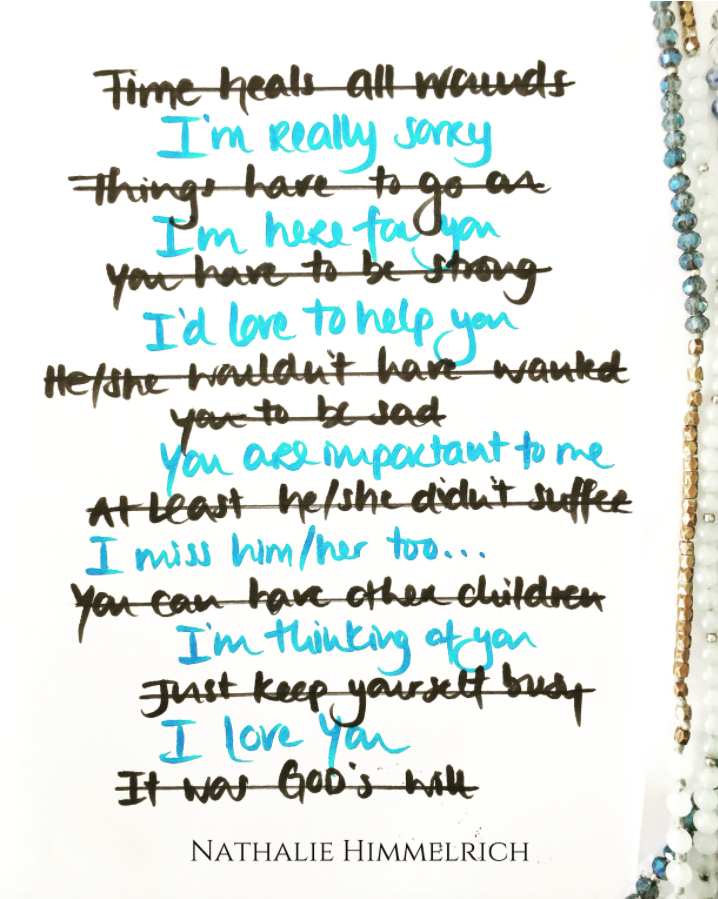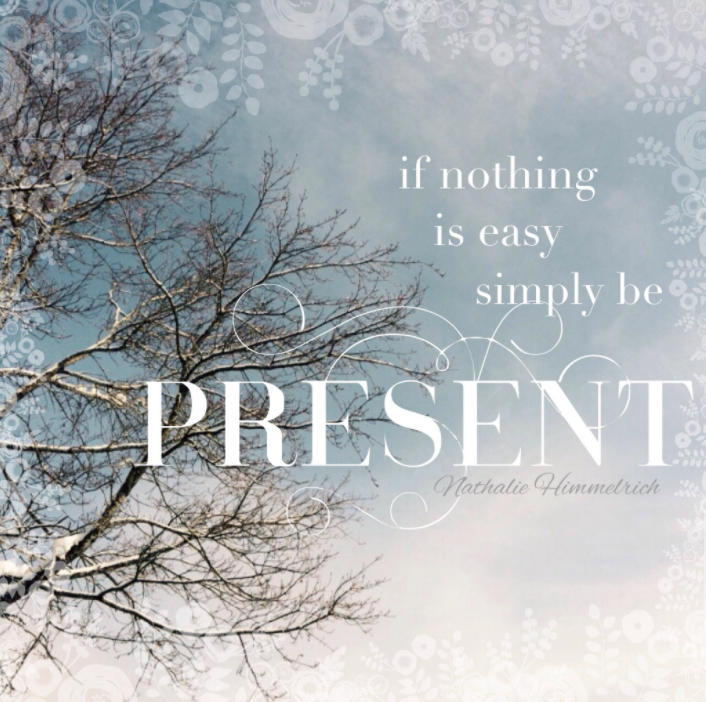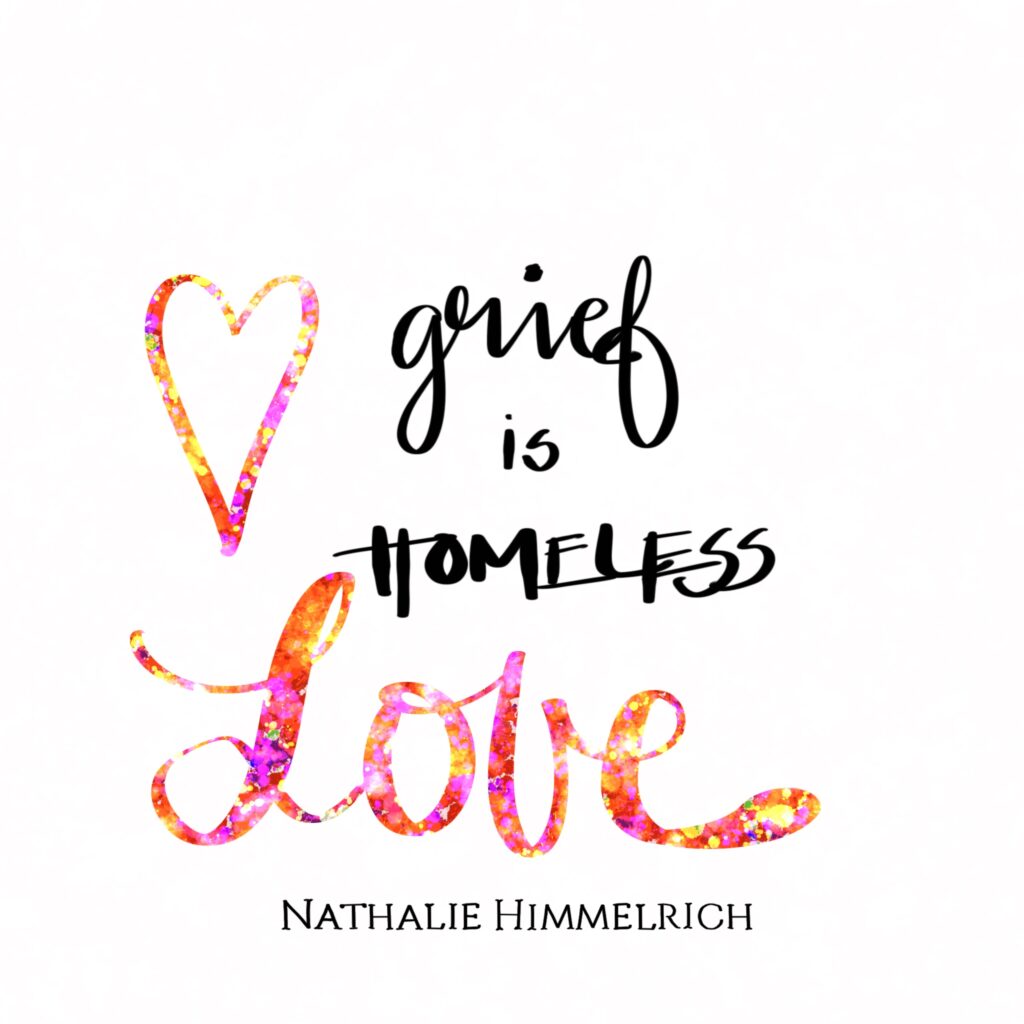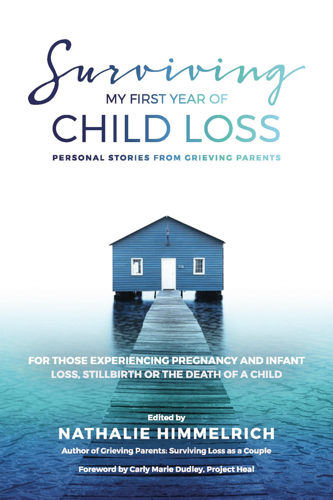
Nice things are easy to say or do, once we know what they are…
Having written a chapter about ‘What to do and say instead’ (of those things not to do or say) in the book Grieving Parents: Surviving Loss as a Couple’ I realised that no amount of words would ever be able to conclusively convey what bereaved parents experienced as individuals’ needs are as unique as the child they have lost.
We asked this question “What is the nicest thing a family member or friend said or did after your loss?” to bereaved parents. Here are some of their answers. (This is a long list but you might like to come back to it so save it and share it with anyone you feel would benefit.)
* Note: Have tissues ready.
The nicest thing that people said or did

- She’ll never be forgotten.
- Sat with me hugged me and cried with me.
- My parents, taking care of both me and our oldest one. Taking days off from work to be with us.
- A group of very gorgeous (not to mention generous) friends purchased a star in the name of our angel. On his first Angelversary, we went to view the star.
- Bought my rainbow a ton of stuff when I couldn’t bring myself to do it.
- A friend offers to pay for our Molly Bear.
- Nothing. They were just there.
- Speaking openly about my daughter, saying her name.
- She said nothing, wrapped her arms around me and cried with me.
- Old co-workers of mine purchased a tree in a public park in her honour. It has a plaque with her name.
- My stepdad played and sang “tears in heaven”.
- My best friend broke the speed limit to get to us at the hospital.
- Someone remembered that I craved chocolate-covered gummy bears during my pregnancy and when we lost our son in my 3rd trimester she sent a box of stuff including chocolate-covered gummy bears. It meant so much to me. I wasn’t emotionally ready to eat them at that time so I froze them and ate them on his first birthday in honour of him.
- We had friends name a star after our daughter and my cousin built us a cedar chest.
- She puts angels on her Christmas tree, and one of them is named after my baby.
- I have been very selfish in my grief I think, I always thought no one was there, but our friends bought us a locket, we had a rose given from both our workplaces and a cardigan and blanket handmade from work colleagues.
- Friends asked if they could include Marcus’ birthday in their calendar of friends (mostly their young daughter’s pre-school friends) so that they could celebrate it every year. He would have been just 1 year younger than their daughter.
- When my grown daughter made me my favourite tea and put me in a hot bath after arriving home. Like I was the child she led me to the washroom helped me undress (I was a zombie) helped me in the tub and sat and listened to me. It was the most powerful moving experience between my 1st born and me, not counting her own birth.
- A friend of mine sent me a Mothers Day card which was a week or so after Evan died at 4 days old. Made me cry but I’ll never forget it because he’d thought of me.
- My dear friend whom I also refer to as “mom” knit an outfit for us while praying with every stitch.
- I think the nicest thing someone can do is just to mention her name. Everyone is so afraid to make me upset. They don’t realize that letting me know that you remember her is a gift.
- I will never forget how thankful I was to the few family members who meremembered me on my First Mothers Day (it was my first ever and my first with an angel).
- My aunts on my father’s side all chipped in and bought a baby oak tree for us to plant in memory of our son.
- My friend bought me my favourite Lindt Extra Dark Chocolate truffles for an entire year. Every time I was almost out more would show up. She even got me some chocolate teddy bears once.
His theme is Teddy Bears because God made his footprints they did in the NICU form a teddy bear. I’ve been getting random teddy bears for almost 2 years now because whenever someone sees one they think of Radley and me. Someone even made an aluminium bear for my husband to put on his semi. - The best thing anybody has ever said was last year, I told her that half of my kids (four of them) are in heaven and she said, “THAT many??! That’s AWFUL!!”
- I had two professional photographers offer their services at no cost on two occasions: one set of pics in our daughter’s burial clothes when we dressed her and the other set from the memorial service. I will cherish those photos for my entire life.
- It wasn’t what they said; it was how they made me feel. They were blunt, matter of fact, didn’t sugarcoat or diminish what we went through. I appreciated their lack of avoidance which translates into sincere empathy.
- Brought pictures of him. I didn’t have many. Meant the world to me. Also a DVD of photos. And put them to music for his funeral.
- They encouraged me to attend our church’s “Grief Share” support group. This saved me!
- Writing his name in a card, a pot plant for butterflies, filling the freezer with home cooking, and trinkets that made them think of us or baby loss were very kind and helpful.
- My best friend sent me a card every single month after I lost my twins to remind me she was still thinking of them and I looked forward to getting one each month. After the first year, she sends me a card every year on their birthday.
- A friend of mine from college came over the day after I was released from the hospital after losing my daughter at 20.5 weeks and filled my refrigerator with homemade food. She also wrote a touching note and brought over magazines since I was recovering from surgery. It was the sweetest and most generous thing anyone has ever done for me. It made a very difficult time a bit easier for me.
- It was a nurse in the hospital, many years ago…, who said to me ‘I will never forget you until the day I die’. I asked her why and she just said ‘You never moaned, cried, just said “thank you” all the time to everyone who did anything for you, yet we all knew how badly you were hurting both mentally and physically’. Not like me, I must say cause I normally don’t stop talking. She should have seen me cry when I got home!
- For me, it was helping with our older daughter, who was 4 at the time. Just picking her up and taking her to run errands with them or do something fun. She needed normalcy and at times I just couldn’t give her that.
- Flowers on the anniversary of loss or day was born or just a text thinking of you on those days. Just ones who acknowledged the baby we lost.
- I have two friends that brought lunch and came to spend the day with me at least once a month for the first 18 months after my adult son was killed. We still get together about every 4-6 weeks although sometimes at different places now. They drove over an hour each way, gave me permission to say/feel/do anything I needed/wanted to do and just loved me. I would not have made it this far in processing my loss without them. They were/are my lifeline when things feel hopeless and I want to give up.
- It’s nearly 2 years since my little girl passed away and I am still touched that my friends and their children still remember her and talk about her.
- My sister and best friend made themselves available for me to call (they were in 2 different time zones than I lived then) any time of night.
- Some acquaintances gave me a gift card for a massage.
- We were given a Rhododendron which was a variety that had our daughter’s name, Marissa. We also received an Heirloom rose variety called Braveheart, which was aptly named because our daughter endured tremendous medical challenges, including a bone marrow transplant. She faced it all with courage, grace, and bravery. Her heart was made of gold.
- Very special friends told me “I know you will never be the same person you were, but we love you, our friend & we will always be here”. Very special forever-friends with unconditional compassion…
- My dear friend bought me a beautiful baby doll and named her Bonnie in honour of my daughter. My friends were there when we returned from the hospital with love, support and a tiny bracelet with Bonnie’s name.
- If they grow tired of hearing me talk about any of our pregnancies and losses, or if they’ve ever grown tired of the tears and anger in moments of vulnerability… They’ve never let me know it. I’m not close to home so care packages, calls and trips to take care of me are all ways they’ve shown they care. A star was named after our first child.
- My family was there for us emotionally and full of support. My coworkers purchased a gift card for us to buy a tree, in honour of the baby we lost. All lovely gestures.
- There’s been much kindness. I was really swept away by the piece my friend stitched for my daughter. Moved and overwhelmed with appreciation and gratitude.
- She always messages or calls on her birthday. She told me sometimes she is sad for her daughter because she is missing out on her best friend, my daughter. They would have gotten into so much trouble together. It means so much to know she thinks of my daughter and misses her too.
- My mom had bought our baby a blanket when we were expecting so she gave it to me to hold our daughter in when she was born too soon at 20 weeks and 5 days. She also bought me a beautiful “Heart Reunion” necklace that came with a poem. It’s definitely one of my favourite precious mementoes.
- I also had an old friend from high school send me a donation card in our daughter’s name for the NICU. This same friend also set up two butterflies to be released for the PAIL Network Release for our daughter and the one we lost after her that was just so thoughtful. She isn’t even someone I’ve seen in over 18 years and it was so touching that she reached out even after all this time.
- I know it may sound weird but one of the best things a good friend of mine did was go out and buy a bunch of clothes for me. She knew I wouldn’t want to wear my maternity clothes and I didn’t fit any of my pre-pregnancy clothes. She just showed up at my house the day after he died with a big bag of clothes in a couple of sizes – including underwear and socks! It was like she read minds!
- My best friend made sure I got out of the house to spend time with her every week after my 18-year-old son died in a car accident. I often did not feel like it but it always revived me and allowed me to keep moving forward.
- The gift that I cherished the most was simply remembering. Birthdays, holidays, the anniversary of her death…just knowing that we weren’t alone in our pain was enough to get us through one more day.
- My sister-in-law, who was expecting her own little boy just 2 months after I delivered Peyton, asked me if she could give her son Andrew, Peyton’s name as his middle name. To this day it is one of the most caring things anyone has ever done to keep my little boy in our hearts.
- A good friend had offered to make a quilt of my daughter’s clothes for me. She had it ready and gave it to me on Mother’s Day…..that was 6 years ago and she’s still one of the only people to still talk about our daughter to us. That’s always the best feeling….when people acknowledge that she was part of our family.
- A very special group of women commissioned one of our own members to create a “family portrait” of me and my husband after our daughter was stillborn.
- One of the most thoughtful things done for our daughter was something her brother did during the funeral. He and his wife were expecting a baby a little over a month later. They lived 10 hrs away and were unable to attend because of the distance and his’s wife’s pregnancy. So he arranged along with one of my sons-in-law, who lives here, to have the service shown live at his church in the town where he lived.
- A friend of mine crocheted me a tiny blanket and hat the size of the baby we had lost. Another mailed me a book called Grieving the Child I Never Knew. My husband’s cousin had a locket made with our ultrasound picture in it. And someone anonymously sent me a Mommy of an angel bracelet. My mom and sister sent care packages.
- I also had a wonderful friend who I had not seen in four years make a 7-hour drive with her husband and two-year-old to visit and comfort me. We stayed up all night colouring and crying together. It was incredible and exactly what I needed. Miscarriage and infertility are lonely. The love made life bearable.
- When I told my grandma I was pregnant, I was unaware that she immediately crochet me a baby blanket. A week later I had a miscarriage. Two months later she told me what she had done and gave me this beautiful baby blanket. It’s the only thing I have for my baby. That was 19 years ago.
- My cousin had her baby boy just a few months before we lost our daughter. We were both so excited to be first-time moms together! After our daughter passed she texted me that her son would sit and stare at nothing, then start babbling like he was talking to someone, she said she believed he was talking to our daughter…I cried so hard, but it made me smile as well.
- A family friend wrote us a card and said she whispered Aster’s name every day so she would never be forgotten. It meant more to me than I could ever express
- I was talking to a friend of a friend once, and we were sharing birth stories. I told her the births of my two sons, and when I was finished she asked about our daughters birth, and I was a little taken aback and said most people don’t ask about her, and she said, ‘that’s horrible, she’s your child too.’
I wish there were more people who were so kind and willing to speak of angel babies. - One of my friends, texting me right back when she received my text. “Just tell me what you need me to do, I’m yours to use” And then she started to ask about specific things.
The answers below are from parents of multiples who might have lost one or all of their babies:
- My best friend wrote, “you held him his whole life”. I never thought of it that way and it was really sweet.
- Our first Christmas she gave me a heart locket that used to be hers with my baby picture, now with my boys pictures.
- My friends coming with me to a memorial service at the hospital (it was also good for them to see other grieving parents).
- My friend gave me personalized Christmas ornaments for both of my boys.
- That, even 8 years later, that they still remember and think of him.
- My friend told me several things I liked, for example: “you went to hell and came back”.
- My mom sent me a note for Mother’s Day from all (4) of my kids. I love that she included D on the card. Most people don’t acknowledge him anymore now that it has been 6 months.
- “I’m so grateful I got to meet her.”
- One of my guy friends sat next to me and just said “that is so fucked up…..” and put his arm around me.
That’s what I needed. No more “I’m sorry” or “it’s part of a plan” or “you still have one baby”. I just needed to hear from someone else how fucked up it truly was. - Someone I don’t know in one of the loss groups said to me “don’t worry about taking things day by day, take them breath by breath”. I took this advice literally many many times.
- When my son passed my niece only 3 came to me and said: “I want you to have all your babies, Auntie” and gave me the biggest hug and kiss… she is only 3 and she made me feel like a 3-year-old understand what’s going on.
- Honestly, it’s anytime anyone mentions his name. Writes his name down with the other kids, just acknowledges him as part of our family. It means so much when people do that.
- It is amazing to have someone so comfortably talk about her with me.
- My friend who said “This sucks” and “There is no reason for this or why it happened” and didn’t try to make me feel better but just met me in my place.
- “This isn’t how this is supposed to be…”
- My mother has made receiving blankets for my angels, bought me a personalized ring and is currently making them all blankets embroidered with their names and birth dates.
- My friend sent ornaments for my girls. She lives 9 hours away and my daughters were in the NICU so it was hard to be there in person. She also wished them both their monthly birthdays. About a month into our NICU journey she came to visit and just stayed at the hospital with me. We are 2.5 years out and she still asked how I’m doing and talks about my angel with me. She’s the only person (friend or family) that still does.
- They talk about her and include her.
- My first mothers day her grandma and grandpa on her dad’s side bought me a stone angel to sit by the flamingo willow my parents bought in her honour and her dad made a space for the tree in our yard and landscaped around it so that the area looked like a heart.
- A group of mommy friends had a quilt made for my baby. I sobbed when I saw it. I’ve also received a mother’s necklace with all my baby’s names, a bear with his name for pictures, a NICU survival kit (snacks, books, etc) and a memorial statue. I have some beautiful friends.
- My friend who lives across the country started sending me text messages every day, either of something funny to make me laugh or of an inspirational quote. She helped me cope more than she will ever know.
- A group of friends I have only met through the internet clubbed together and bought me a Pandora bracelet with charms for my angel! I still wear it every day.
- My best friend still writes his name on birthday and Christmas cards 4 years on.
- My little brother who’s 18 got a tattoo done with his name underneath.
- ‘This sucks’. Right after my daughter passed and everybody was visiting me, people were trying to tell me nice things. One person, the rabbi’s wife, looked me straight in the eye and told me that when she had lost a parent that is how she felt. That everyone is trying to say nice things but in reality, it sucks!
- My neighbour said something similar: ” F***ing Sh**!” That’s what I felt too and there was nothing else to say.
- My friend was there when my boys were born. When I said I didn’t think I could hold Matthew, she told me that I would regret it later. She took his keepsake box safe and private for me until I came home. While I was in the NICU with his twin brother, Caleb, my friend called every day to check on him. She rubbed what she called “his little baseball head”. She brought food, clothes, and love. When Caleb died, she sat with me as I held my sweet baby boy. She just put her arm around me as I wept.
- When my husband’s grandma died, his uncle called us and asked if it was ok to list my twins in the “preceded in death” part of the obituary…I was so shocked because most people just like to pretend they weren’t here. That part of our family also put up a photograph of them on the memory table at their son’s wedding.
Remember that what is helpful or nice for one person might not be for another.





